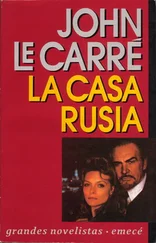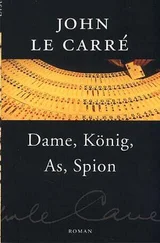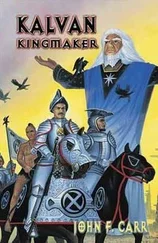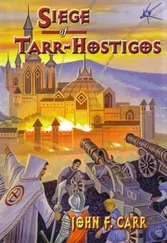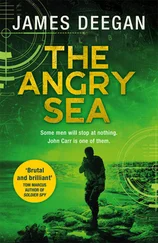Like yourself but a little older, and the hair shorter, monsieur.
* * *
Prague.
To the surprise of his staff, Minister Quinn is only too happy to accept the hospitality of the British Embassy in Prague. The ambassadress, a recent Foreign Office conscript from the City of London, is an old buddy of Quinn’s from Harvard days. While Fergus was post-gradding in good governance, Stephanie was notching up a Master’s in Business Studies. The conference, which takes place in the fabled castle that is Prague’s pride, is spread over two days of cocktails, lunches and dinners. Its subject is how to improve intelligence liaison between NATO members formerly under the Soviet maw. By the Friday evening the delegates have departed, but Quinn will stay another night with his old friend and, in Stephanie’s words, enjoy ‘a small private dinner all for my old schoolmate Fergus’, meaning that Toby’s presence will not be required.
Toby passes the morning drafting his report on the conference, and the afternoon walking in the Prague hills. In the evening, captivated as ever by the glories of the city, he strolls beside the Vltava, wanders the cobbled streets, enjoys a solitary meal. On returning to the embassy, he chooses for his pleasure the long way past the castle and notices that the lights in the first-floor conference room are still burning.
From the street his view is constricted, and the lower half of each window is frosted. Nonetheless by climbing the hill a few paces and standing on tiptoe, he is able to discern the outline of a male speaker silently holding forth from a lectern on the raised platform. He is of average height. The bearing is erect and the jaw action perfunctory; the demeanour – he cannot say quite why – unmistakably British, perhaps because the hand gestures, while brisk and economic, are in some way inhibited. By the same token Toby has no doubt that English is the language being spoken.
Has Toby made the connection? Not yet. Not quite. His eye is too busy with the audience. It is about twelve strong and comfortably settled in an informal half-circle round the speaker. Only the heads are visible, but Toby has no difficulty in recognizing six of them. Four belong to the deputy chiefs of the Hungarian, Bulgarian, Romanian and Czech military intelligence services, every one of whom, only six hours earlier, professed his undying friendship to Toby before notionally boarding his plane or staff car for the journey home.
The two remaining heads, which are close together and set apart from the rest, are those of Her Majesty’s Ambassador to the Czech Republic and her old Harvard chum, Fergus Quinn. Behind them on a trestle table lie the remnants of a lavish buffet that presumably replaced the small dinner all for Fergus.
For five minutes or longer – he will never know – Toby remains on the hillside, ignoring the passing night traffic, staring upward at the lighted windows of the castle, his concentration now fixed on the silhouetted figure at the lectern: on the trim, straight body, the crisp dark suit and the taut, emphatic gestures with which he spells out his rousing message.
But what is the mysterious evangelist’s message?
And why does it have to be spelt out here , rather than in the embassy?
And why does it meet with such conspicuous approval from Her Majesty’s minister and Her Majesty’s ambassador?
And who above all is the minister’s secret sharer, now in Brussels, now in Prague?
* * *
Berlin.
Having delivered a vacuous speech, written by Toby on demand under the title ‘The Third Way: Social Justice and Its European Future’, Quinn dines privately at the Adlon Hotel with unnamed guests. Toby, his day’s work done, sits chatting in the garden of Café Einstein with his old friends Horst and Monika and their four-year-old daughter, Ella.
In the five years Toby and Horst have known each other, Horst has risen swiftly through the ranks of the German Foreign Service to a position akin to Toby’s. Monika, despite the cares of motherhood, contrives to work three days a week for a human rights group that Toby rates highly. The evening sun is warm, the Berlin air crisp. Horst and Monika speak the north German that Toby is most comfortable with.
‘So, Toby’ – Horst, sounding not quite as casual as he means to. ‘Your Minister Quinn is Karl Marx in reverse, we hear. Who needs the state, when private enterprise will do the job for us? Under your new British socialism, we bureaucrats are redundant, you and I.’
Unsure where Horst is coming from, Toby prevaricates:
‘I don’t remember putting that into his speech,’ he says, with a laugh.
‘But behind closed doors, that is what he is telling us, is it not?’ Horst insists, lowering his voice further. ‘And what I am asking you is, Toby, off the record, do you support your Mr Quinn’s proposition? It’s not improper to have an opinion, surely. As a private person, you are entitled to an off-the-record opinion about a private proposition.’
Ella is crayoning a dinosaur. Monika is assisting her.
‘Horst, this is Greek to me,’ Toby protests, dropping his voice to match Horst’s. ‘ What proposition? Made to whom? About what?’
Horst seems undecided, then shrugs.
‘Okay. Then I may tell my boss that Minister Quinn’s Private Secretary knows nothing? You don’t know that your minister and his talented business associate are urging my boss to invest informally in a private corporation that specializes in a certain precious commodity? You don’t know that the commodity on offer is supposedly of higher quality than anything available on the open market? I may tell him this officially? Yes, Toby?’
‘Tell your boss whatever you like. Officially or otherwise. Then tell me what on earth the commodity is.’
High-grade information, Horst replies.
More commonly known as secret intelligence.
Collected and disseminated in the private sphere only.
Unadulterated.
Untouched by government hands.
And this talented business associate of his? Does he have a name? – Toby, incredulously.
Crispin.
Quite a persuasive fellow, says Horst.
Very English.
* * *
‘ Tobe. A quickie, sir, if I may. ’
Since returning to London, Toby has found himself in an impossible quandary. Officially he knows nothing of his minister’s record of mixing private business with official duties, let alone of the scandal at Defence. If Toby goes to his regional director, who expressly forbade him to enquire into such matters, he will be betraying the confidences of Matti and Laura.
And Toby as ever is conflicted. His own ambitions matter to him too. After almost three months as the minister’s Private Secretary, he has no desire to compromise whatever bond he has forged with him, tenuous though it is.
He is wrestling with these abstractions when, at four o’clock one afternoon that same week, he receives the familiar summons over the ministerial phone. The mahogany door is for once ajar. He taps, shoves and enters.
‘Close it, please. Lock.’
He closes, locks. The minister’s manner strikes him as a bit too affable for comfort: and the more so when he rises blithely from his desk and, with an air of schoolboyish conspiracy, steers him to the bay window. The newly installed music system, his pride, is playing Mozart. He lowers the volume but is careful not to dowse it.
‘All well with you, Tobe?’
‘All fine, thanks.’
‘Tobe, I very much fear I’m about to screw up yet another evening for you. Are you game for that?’
‘Of course, Minister. If it’s necessary’ – thinking, Oh Christ, Isabel, theatre, dinner, not another.
Читать дальше






